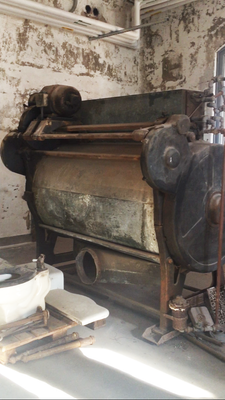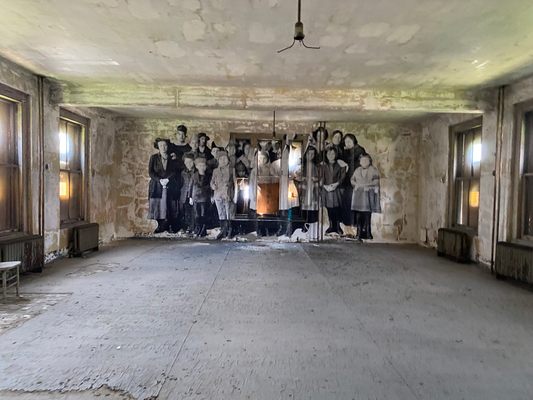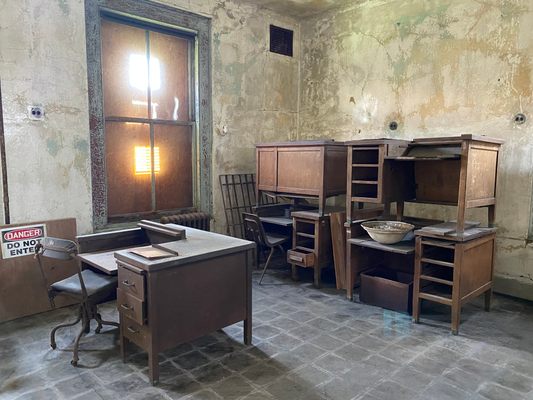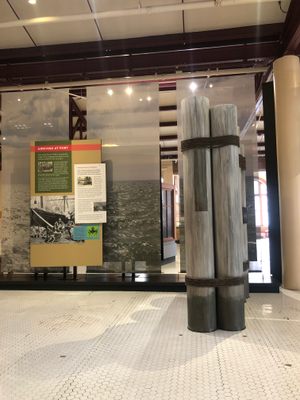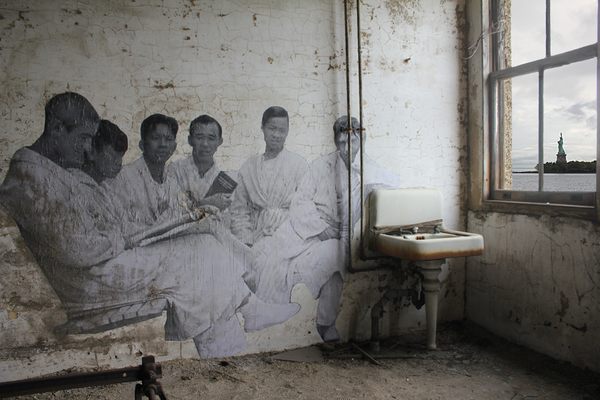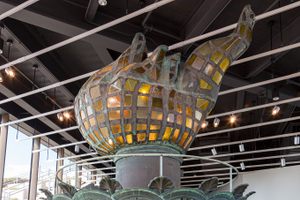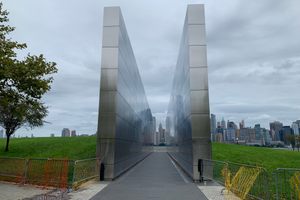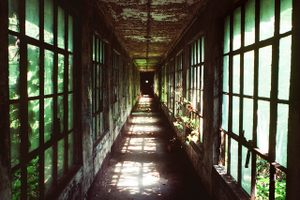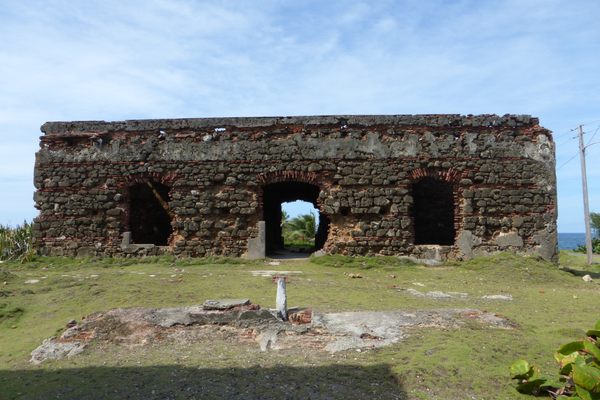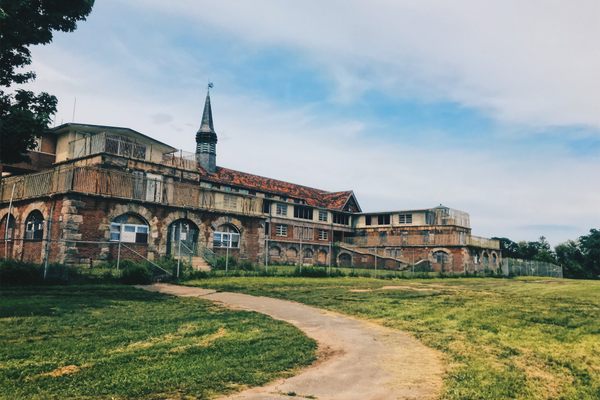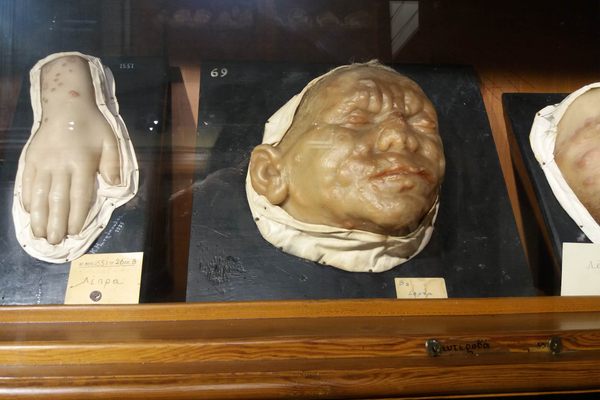About
The first public health hospital in the United States exists as a haunting shadow of its former self. Paint peels from the walls, and a floor trod upon by more than one million immigrants lies buried beneath grime and debris.
The Ellis Island Immigrant Hospital is built on two human-made islands constructed from leftover land excavated for the Lexington Avenue subway line. The islands have since been connected but were originally separated by a ferry basin because of a belief that germs couldn't travel across a body of water.
One island held the general hospital, which consisted of four operating rooms, a women's ward, a pediatric ward, a maternity ward, and a psychiatric ward. The general hospital also held a state-of-the-art laundry room equipped to process thousands of pieces of clothes a day.
The other island held the contagious disease hospital, built in a pavilion style proposed by Red Cross inspiration Florence Nightingale, which meant patients with different diseases were kept in separate wards. Small standing rooms connected to many of the quarantined wards let nurses and doctors examine patients without actually entering their rooms.
The hospital was a bleak place for some of the immigrants who arrived there, as a variety of diseases or perceived deficiencies meant deportation. If a child was found to have favus, a fungal disease of the scalp, they were either outright deported or required to spend at least a year in the hospital undergoing treatment most immigrant families couldn't afford. Children were often abandoned, or families split up so they could be accompanied home by a parent. This could be the last time siblings or spouses saw each other, as family members were often sent back to their home countries in turmoil.
On the other hand, many people found the fresh start they were looking for on Ellis Island. More than 10,000 patients from 75 different countries were treated over the course of a single year at the hospital. Red Cross volunteers visited with a focus on making the place more comfortable and enjoyable for immigrant children. Pregnant, single women were taken care of in maternity wards until they had given birth, and many of the 350 children born at the hospital were named after the doctors and nurses who worked there.
The hospital shut down in 1951 after a slow decline due to tightening immigration restrictions. In 1954, the islands were officially abandoned by the Coast Guard and declared “excess federal property.” Today, limited tours are available through government partner, Save Ellis Island.
In 2014, French artist JR took centuries-old photographs of immigrants at Ellis Island and pasted them to certain walls and windows of the hospital. The photos are a haunting reminder of the people that passed through the island years ago.
The complex is open for guided tours daily. The 90-minute tours, conducted by Save Ellis Island, take visitors through select buildings and grounds of the hospital.
Related Tags
Know Before You Go
Save Ellis Island, an official park partner of the National Park Service offers public and private 90 minute Hard Hat Tours year round. Money raised through the tours goes toward stabilizing and protecting these buildings. Tickets may be purchased online through Statue Cruises, the National Park Service's official ferry concessioner for Ellis Island and the Statue of Liberty, or in person on Ellis Island on a first come, first served basis.
Published
February 6, 2018








